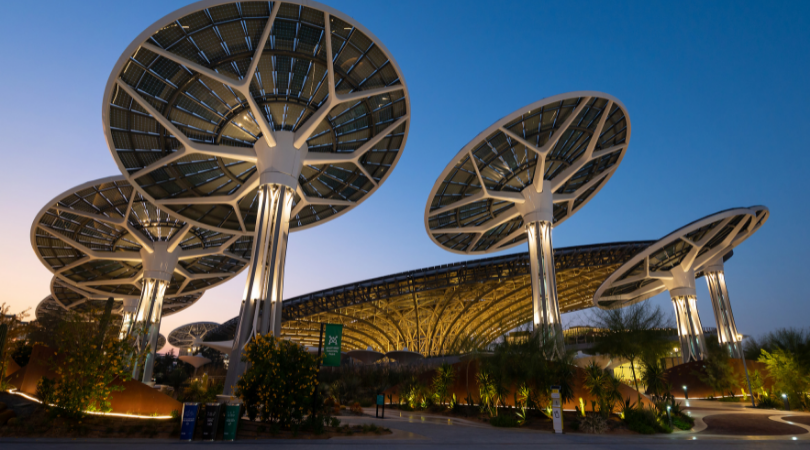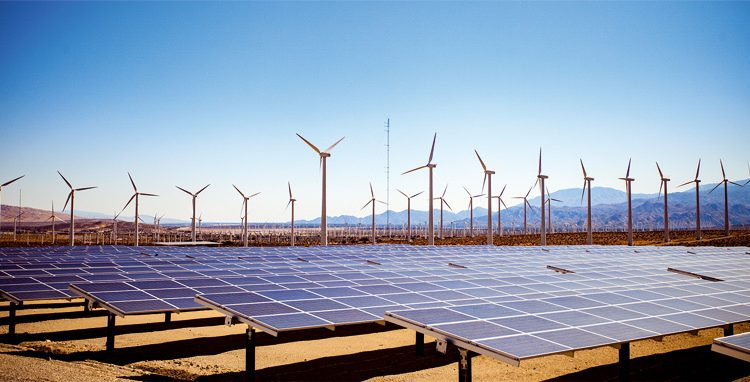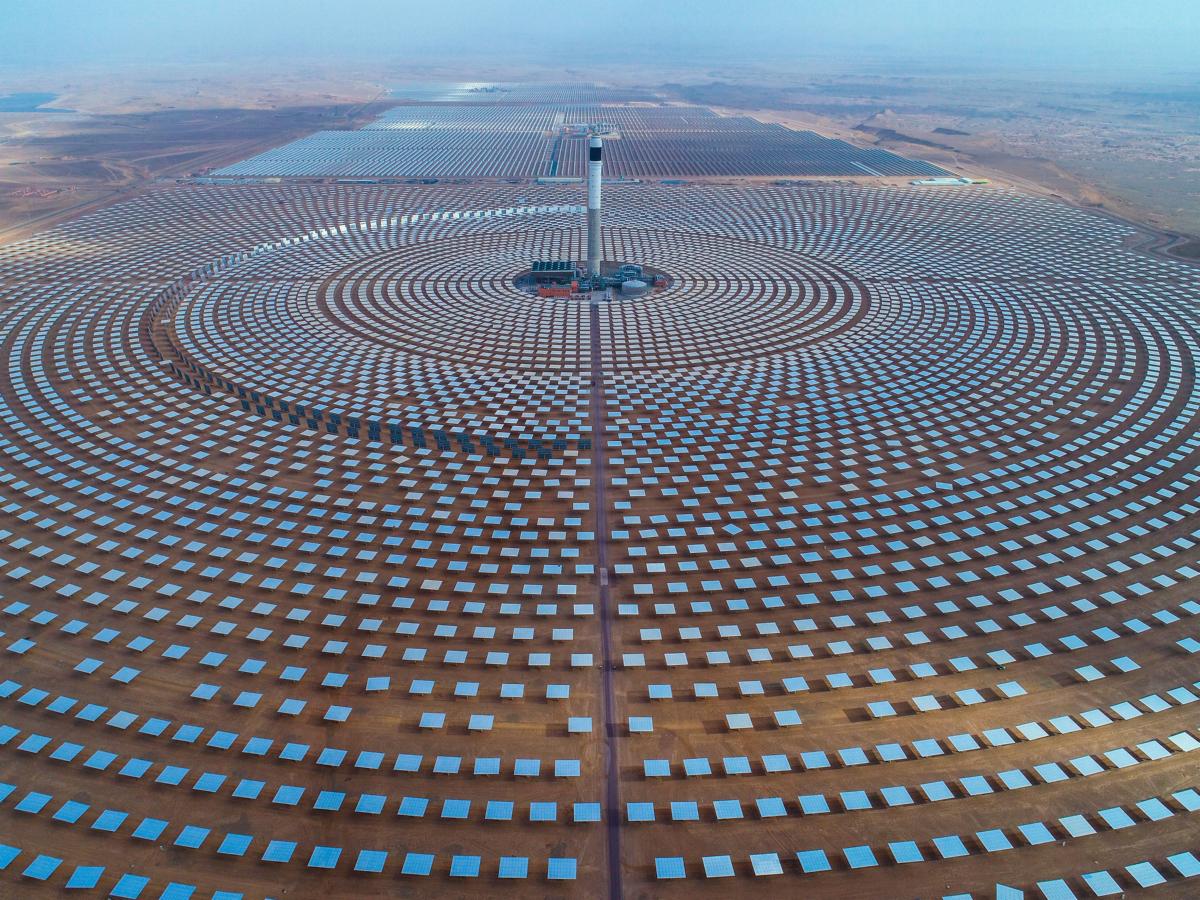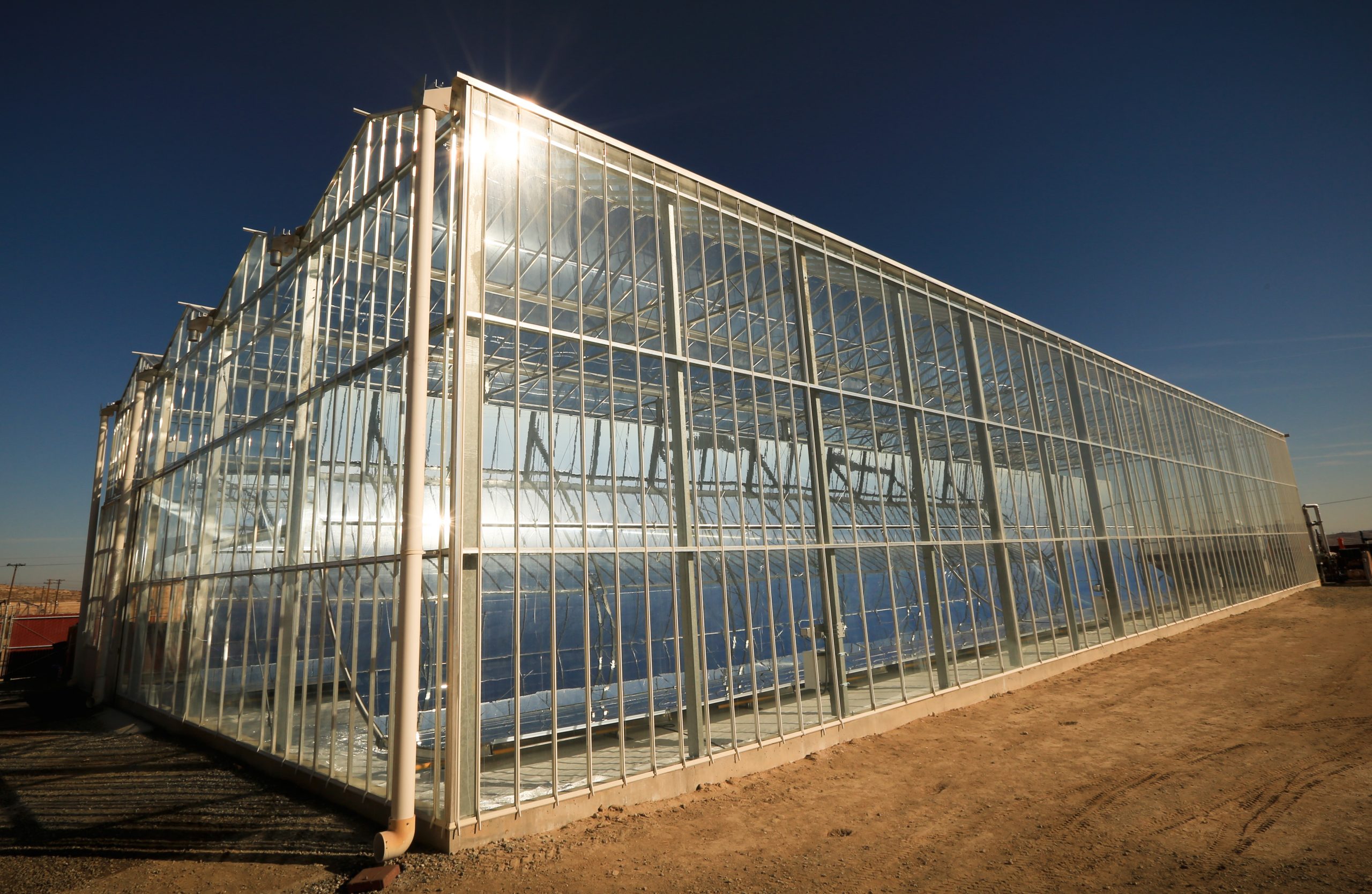Africa’s Mining Industry: A Lifeline for Regional Growth
Africa has for some time now become the focus of the international economic community. With growth having stalled in much of the world’s continents for the last few years, Africa has naturally seen its development take centre stage. Its growing sectors have been more and more sought after for investment opportunities – one of which is the extractives industry.
Africa is home to 253 Billion Barrels of crude oil proved reserves[1] and 30% of the world’s mining resources[2] with new developments installed in countries such as Nigeria, Angola, Ghana, and other resource-rich countries, and is seeing its extractives industry grow exponentially. The challenge for African countries today is to further develop this industry, build its resilience, and strive to establish sustainable and inclusive growth through its major resources. With the subject being too large to comprehensively cover, one may analyze the matter through three main prisms.
The first part of this article will seek to shed light on the extractives industry in Africa on a macroeconomic level. The second part will focus on the barriers against full-scale growth such as political instability and transparency, and narrow legal frameworks. The third element will concentrate on ideas to make the extractives industry more inclusive and resilient, through the channeling of extractives revenues to the development of other sectors, and to avoid “risky lock-ins to carbon-intensive development models”.
The extractives industry is a global booming enterprise and is a major source of revenues for countries worldwide. In 2012, the extractives industry alone accounted for $1.5 Trillion of government revenue (oil, gas, and mining) worldwide.[3] Africa is home to leading global players in all major extractives sectors.
For instance, Nigeria, Algeria, and Libya have long since been recognized as major crude oil producers, and countries such as Angola, Ghana, and Gabon are steadily becoming continental and global oil heavyweights. With the significance of fossil fuels in economic development already established, Africa’s weight is sure to expand as Africa’s oil output is set to increase in the coming years and will account to 10% of global oil supply by 2035.[4]
Natural Gas production is also garnering steam in Africa with Algeria, Libya, Egypt and Nigeria already established players in the market (Algeria and Nigeria are considered to have the largest proven gas reserves in Africa)[5], and countries such as Equatorial Guinea and Ghana on course to becoming important players. It is worth noting, and also a testament to Africa’s natural resources, that almost 30% of global oil and gas discoveries in the past 5 years have been made in sub-Saharan Africa, which reflects “a growing global appetite for African resources”.[6]
Africa’s mining sector is arguably the continent’s greatest asset. According to the US Geological survey, Africa ranks “as the largest or second-largest reserve of bauxite, cobalt, industrial diamonds, manganese, phosphate rock, platinum group metals and zirconium”[7]. Indeed, large mineral-rich parts of Africa remain un-probed and even so, it is home to approximately 85% of the world’s phosphate reserves and “contributed 6.5% of the world’s mineral exports during 2011 from mining 20% of the world’s land area”.[8] For instance, 90% of Tanzania’s mineral resources remain untapped, while Namibia’s mineral sector is to increase by 12.5% towards 2017, and Zambia’s mining sector is set to expand by 2%-4% in the next five years.[9]
Indeed, this has made Africa an attractive place of investment for the mining industry. In fact, 6 African countries (Botswana, Namibia, Ghana, Zambia, Tanzania, and South Africa) were in the top 15 countries for mineral investing in 2014 according to mining advisers Behre Dolbear.[10] Moreover, not only are Africa’s natural resources and growing status helping it become an attractive place for foreign investment and players, they are also helping the continent capitalise on its natural assets and potential internally.
Thanks to its vast resources, Africa’s economic opportunities have advanced cogently in the last 10 years. Economic advancement has been increasing average incomes, especially in resource-rich countries, and a large number of countries are recovering for the recent financial and economic crises. Indeed, some of these African countries have made remarkable efforts in bettering the lives of their citizens. Nevertheless, a wide array of issues remain, including human development, and various barriers to further investment and the development of the extractives industry in the continent.
Though Africa has seen a surge in GDP in the last decade – and its extractives industry is a largely responsible for this – there still are numerous barriers against full-scale growth. While there are many factors delaying a full-blown expansion of African economies, two outstanding elements are arguably the most important ones. Indeed, political stability and transparency, and legal frameworks tend to be the primary hurdles to jump for sustained and steady operations.
Political stability is paramount for healthy extractives – or any other – industry. In the last few decades, African countries have made headway in introducing more inclusive and more participatory governance systems that have streamed over to a more transparent dealing of its industries. Examples from South Africa and Botswana seem to back the idea. However, while some political stability has been achieved, it remains that most of the African continent, mining industry or not, is still a political powder keg: Indeed, the Fund for Peace’s “Fragile States Index” shows all of the African continent’s countries between the “Warning” and “High Alert” situations[11]. In fact, political stability is undermined by a combination of historical interstate and intrastate conflict spanning back to the years of Independence from colonial forces, and current issues such as demographic pressures, group grievances, human rights and rule of law, security apparatus, etc. (of which the study is beyond the scope of this paper).
Insofar as all the aforementioned issues are largely responsible for uneven political stability in the continent, the most direct political hurdle to the expansion of the extractives industry and its use as a vector for development is transparency. Undeniably, transparency provides information to ordinary citizens on the management, the level, and the beneficiaries of resource wealth. It also helps with monitoring government activities and concession holders and facilitates the building of consensus and open debate. Examples of transparency issues have been recorded in Nigeria, where “US$6.8 billion had been lost between 2010 and 2012 as a result of corruption and mismanagement”, in Equatorial Guinea where the state oil company has been accused of tunnelling funds to overseas bank accounts, and in the Democratic Republic of Congo which is considered as the most opaque country in concession trading in Africa[12]. The issue of transparency remains of the utmost importance as “Instead of generating widely distributed gains for all, mineral extraction could become an exercise in “winner takes all” politics and economics, confirming the worst predictions of the “resource curse” pessimists”[13].
While transparency provides the sine qua noncondition for better management of resources wealth and economic development, it needs to draw upon stronger and clearer legal frameworks to attain that objective. There exists an intricate blend of domestic and transnational laws and regulations and incomplete institutional transformations which create a thick and ambivalent setting for the extractives industry’s operation in Africa[14].
Many legislators in African countries are prevented from drafting sound legislation as pressure is piled to move legislation quickly, often without amendment, “because funding from international development partners depended on the passage of legislation” and confidentiality clauses are repeatedly included, preventing public inspection of contract details[15]. For instance, Angola’s law13/78 enforces “executive control over all aspects of the country’s oil and diamond industries”, with Angolan law generally preventing the National Assembly to investigate state-owned companies[16]. The Democratic Republic of Congo also falls in the same spiral with the Mining Registry which was set up in 2004 falling in the hands of close allies of the Presidency[17].
Yet in the wake of the financial and economic crises of 2008-2009, the launch of the Africa Mining Vision initiative through the African Union led to a crystallised and comprehensive handling of the extractives industry, promoting catalysation and mitigation objectives as part of its Action Plan[18] – meaning that the extractives industry spearheads development and is used as a catalyst to the growth of other less competitive sectors. Through the catalysation prism, several African countries have reviewed the regulatory framework of their respective extractives industries. The measures taken include: the increase and speeding up of the share of revenues accumulated by the state through taxes, fees, and royalty adjustments; the increase of direct government ownership stakes through free carried interest or state-owned enterprise participation; the expansion of local private ownership; the boosting of local contracting opportunities (upstream linkages); the sanctioning of greater health, safety, and environment and corporate social responsibility provisions; and the establishment of targets for downstream processing and/or beneficiation[19].
Indeed, big strides have been made in last decade to further develop the regulatory framework of the extractives industry in Africa. One success story has been that of South Africa which has recognized the country’s natural resources as belonging to all citizens in the Constitution. It has offered a transparent and progressive legal framework to its extractives industry through the Minerals and Petroleum Resources Development Act of 2002, thus spearheading the catalysation approach to the industry, and establishing itself as a model for other resource-rich African countries.
While the preceding parts focused on giving an overview of the extractives industry in Africa and shedding light on the primary hurdles to its – and Africa’s – development, this part will seek to put forward some ideas to make the extractives industry more inclusive and resilient.
The first element to develop would be Value Addition: The processing of extracted resources directly before export would serve as a link between the extractives industry and the domestic economy, thus contributing to value addition. This would promote investment in the domestic economy, supporting local skills development and overall economic development. Indeed, this would use the extractives industry as a catalyst to the domestic economy and develop integration between various domestic industries, making the extractives sector more resilient and less prone to market volatility.
The second element to pursue would be a unified transparency framework in line with the Africa Mining Vision – that is a “transparent, equitable and optimal exploitation of mineral resources to underpin broad-based sustainable growth and socio-economic development”[20]. This may be completed by using pre-existing regional economic communities such as the Southern African Customs Union to advance industry standardisation: The measures implemented could include the sharing of “statistical data, coordination around regional clusters, spatial development corridors, electrical grids, and lower trade barriers to expand regional markets of both raw materials and finished goods[21]”.
A final element could be the provision to civil society entities with the necessary latitude to scrutinise contracts, licensing agreements and concessions. While this element falls in line with the transparency framework, it does add the dimension that it is available to the general public, and not only to government entities or partner governments.
Adnane Lahmiri, Infomineo Analyst
[1] US Energy Information Agency, 2015
[2] African Development Bank, Mining Industry Prospects in Africa, 2012
[3] Extractives Industry Transparency Initiative (EITI), 2015
[4] BP Energy Outlook 2035, Africa, 2015
[5] World Energy Outlook, 2014
[6] Ibid.
[7] KPMG, Mining in Africa Towards 2020, 2013
[8] KPMG, Mining in Africa Towards 2020, 2013
[9] Ibid.
[10] Behre Dolbear, 2014 Ranking of Countries for Mining Investment: “Where Not to Invest”, 2014
[11] http://fsi.fundforpeace.org/map/2015heatmap.png
[12] Ibid., p.55, p.56
[13] Africa Progress Report 2013, p.54
[14] Chris W. J. Roberts, Extractive Sector Regulations and Policy in Africa: Old Practices and New Models for Change, 2014, p.1
[15] Shari Bryan, Barrie Hofmann, Transparency and Accountability In Africa’s Extractive Industries: The Role of The Legislature, National Democratic Institute for International Affairs, 2007, p. 19
[16] Ibid., p. 37
[17] Ibid., p. 62
[18] http://www.globaldialogue.info/Action%20Plan%20for%20the%20Implementation%20of%20the%20Africa%20Mining%20Vision%20-%20Ayoup%20Zaid.pdf
[19] Chris W. J. Roberts, Extractive Sector Regulations and Policy in Africa: Old Practices and New Models for Change, 2014, p.5
[20] Africa Progress Report 2013, p.92
[21] Chris W. J. Roberts, Extractive Sector Regulations and Policy in Africa: Old Practices and New Models for Change, 2014, p.7
You may also like
Warning: Undefined variable $content in /var/www/sdomains/nexatestwp.com/infomineo.nexatestwp.com/public_html/wp-content/themes/infomineo/single.php on line 235
Warning: Undefined variable $content in /var/www/sdomains/nexatestwp.com/infomineo.nexatestwp.com/public_html/wp-content/themes/infomineo/single.php on line 235
Warning: Undefined variable $content in /var/www/sdomains/nexatestwp.com/infomineo.nexatestwp.com/public_html/wp-content/themes/infomineo/single.php on line 235
Warning: Undefined variable $content in /var/www/sdomains/nexatestwp.com/infomineo.nexatestwp.com/public_html/wp-content/themes/infomineo/single.php on line 235
Warning: Undefined variable $content in /var/www/sdomains/nexatestwp.com/infomineo.nexatestwp.com/public_html/wp-content/themes/infomineo/single.php on line 235
Warning: Undefined variable $content in /var/www/sdomains/nexatestwp.com/infomineo.nexatestwp.com/public_html/wp-content/themes/infomineo/single.php on line 235








